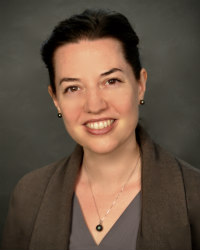This weekend, white nationalists terrorized the people of Charlottesville, Virginia, spewing hate and committing violence. The group committing and encouraging terrorism was organized and intentional, and many people are terrified. Many are also broken-hearted, while others are enraged. And many of us, while distressed, are also unsurprised.
Sadly, this weekend’s festering boil of white supremacy, this un-hooded outcrop of white terrorism, grows from the living body of American democracy. And while this boil smarts and festers, the body has been sick with structural racism and white supremacy since its inception.
It is troubling and frightening that presidential rhetoric and the current political moment has emboldened these hate groups to unmask themselves and rally in public, believing they have the political and institutional support to do so. But even as the state seems to be giving these hate groups relative cover, every day citizens are taking action—from reporting participants in the white nationalist gathering to their employers, to organizing solidarity actions around the country, to initiating conversations with family and friends about what white supremacy is and how it works. This Sunday, our congregation’s Black Lives Matter team is organizing a public witness outside the church at 11:15 a.m. to say no to white supremacy and racism in solidarity with Charlottesville.
At this moment in history, when this kind of hate is rising violently, I find myself asking: who are we? And whose are we? How do we live with the reality that we are all embedded in a system that produced this pain? While the pain is not new, its particular surfacing in fits and boils right now is offering us yet another opportunity to reckon with the deep and long-standing illness of the entire body. This will require the courage and vulnerability to do deep soul-searching and reflection on self, culture, and other. This is also an opportunity for us to learn about the risks of challenging white supremacy, and discover if, as a people, our love is strong enough to overcome our fear. This is soul work. We will need to lean on each other, trust and challenge each other, and return again and again to the deep calling of our souls. I am grateful to be on this journey with you and pray we are headed towards healing.
With love and courage,
Jennifer
The Rev. Jennifer Nordstrom is First Unitarian Society of Milwaukee’s Senior Minister. Jennifer is primarily responsible for worship, mission, vision, leadership, prophetic witness, and congregational systems. She is also head of staff at First Church.


